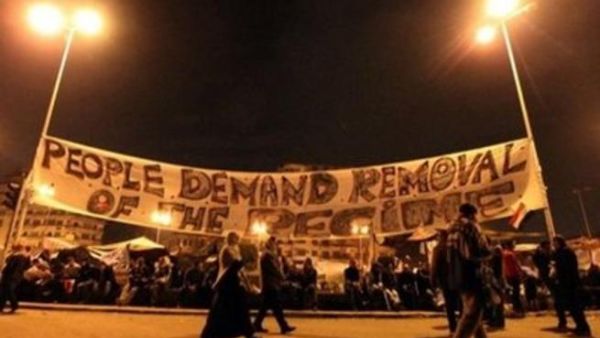At least 20 people were killed and over 425 wounded in clashes in central Cairo between security forces and protesters against Egypt's ruling military junta. With just a week before voting in the first free parliamentary election in decades, the confrontations in the capital Cairo and other cities raised worries about how smooth next week's parliamentary vote will be.
Four of the victims were killed by live bullets. Mohammed Fattouh, who runs a field hospital in Tahrir Square, told AFP he received three corpses bearing signs of live bullets, after doctors reported the death of four people - one died from live bullets and three others due to inhaling tear gas. The Egyptian government has denied the use of live ammunition against demonstrators in Tahrir Square.
According to Reuters, protesters camped out for a third night on Monday in Cairo's Tahrir Square.
Amid the violence, the ruling military junta announced that it does not seek to prolong the transitional period. Its added it would not allow, at the same time, to obstruct the process of democratization in the country. The Egyptian Cabinet declared it was committed to hold elections on time, pointing out that "the artificial tension" is aimed targeting a delay or cancellation of the rebuilding of state institutions. The comments came in a statement issued after an emergency meeting of the Council of Ministers on Sunday to discuss the repercussions of the events in Tahrir Square.
Sources conveyed that violent clashes were taking place between demonstrators and security forces in the city of Suez, and also near the Directorate of Security in the city of Alexandria.








